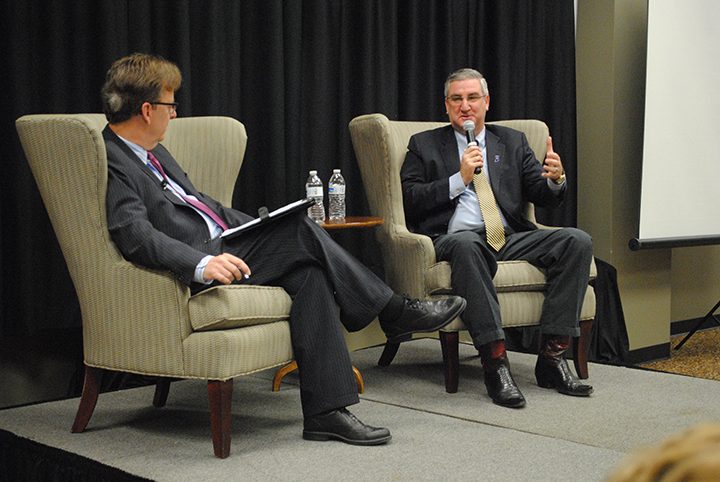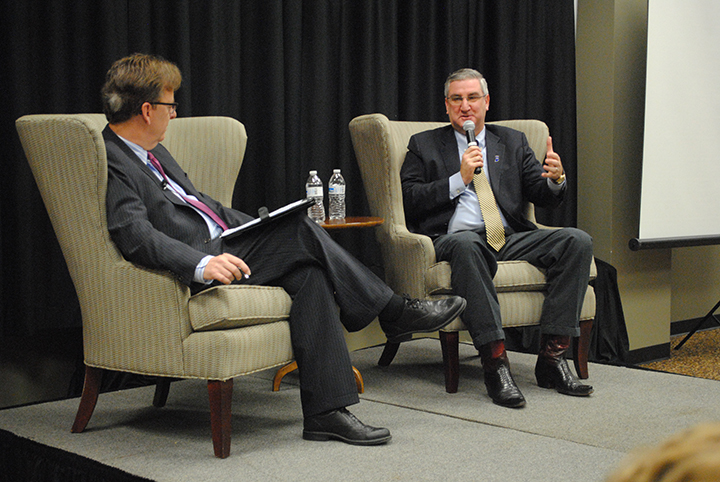
By Anna Skinner
When Gov. Eric Holcomb first took the stage at Conner Prairie for a legislative breakfast targeted toward county chamber of commerce members, it was all laughs.
He joked about his collection of presidential autographs – lacking Washington, the first Adams and Lincoln – and about his height.
As the titters died down, Reporter Kevin Rader brought the governor’s focuses to the surface, first and foremost with his recent pardon of Keith Cooper. On Feb. 9, the new governor pardoned Cooper, a Chicago man Holcomb believed was wrongly convicted for a 1996 Elkhart armed robbery.
“I respect where previous governors landed on this issue, but I thought for myself it’s never too late to do the right thing,” Holcomb said. “I thought this gentleman was innocent and, with all respect to our system, this authority is unique to a governor, and I acted. I did what I considered to be the right thing.”
Holcomb said he thought about the case every day for the past month, and that he was “110 percent sure” Cooper was wrongfully convicted.
Moving on from Cooper, Holcomb explained how he granted East Chicago a disaster declaration for the West Calumet neighborhood, where approximately 99 residents will be relocated due to lead contamination.
However, the two largest topics during Holcomb’s time revolved around infrastructure and the current drug epidemic overtaking the state and nation.
As Indiana is the Crossroads of America, Holcomb said that the phrase needs to be more than just the state’s motto. He mentioned a 20-year plan involving roads, bridges and all other modes of transportation connecting the state to the rest of the nation and the rest of the world.
“I think we are all in agreement it needs to be a long-term plan, a 20-year plan that gets us to the right place,” Holcomb said. “A lot will change in the world over a 20-year period. We can’t just pour a bunch of money into concrete. We do need to make sure we are not just maintaining but finishing projects and then addressing new ones that come our way, too. We can’t do that unless we have a long-term, sustainable program in place.”
When Rader asked Holcomb about the drug epidemic, Holcomb said it was “bad enough that all hands are needed on deck.”
“No matter where you are in any of the 92 counties, and you realize you’re looking at half of all obituaries are drug related, something has happened,” Holcomb said. “I saw a sign outside a business in the state of Indiana that said, ‘we do not drug test, now hiring.’ That’s where we are today, so this is not just a personal crisis, this is a business crisis as well. We have to get this right, and it will require all hands on deck at every level – state, especially local, and federal hands all working together or we will continue to see story after story after story and not just budget strain, but lives lost.”
Holcomb said that although prevention may be the way to fixing the epidemic, there’s a whole lot of treatment that needs to be taken care of first.
“We need to make sure our efforts are aligned and that we are getting folks focused on the prevention, on the treatment and on the enforcement, all three fronts,” he said. “We will have to do more to make sure people get the help they need to get on the path for recovery. We have to have more providers available on the local level. It’s going to need a lot of follow up.”




